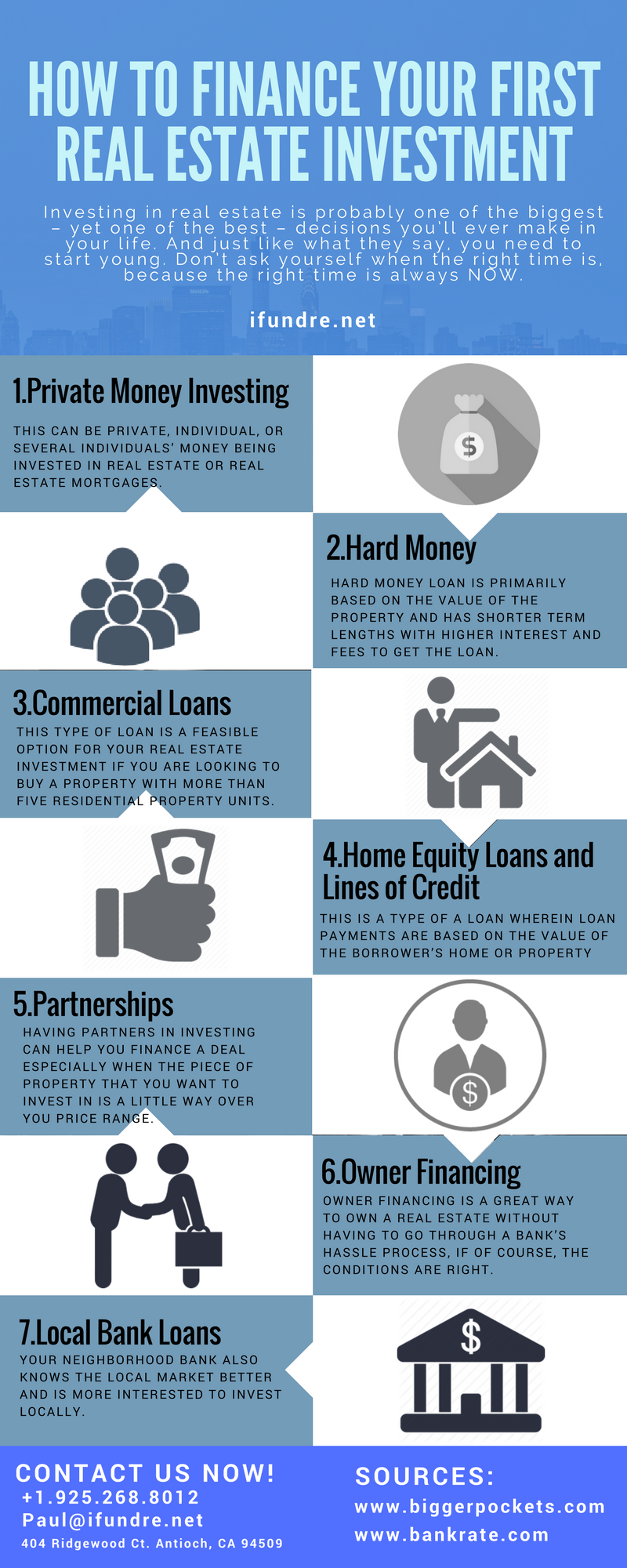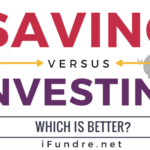How To Finance Your First Real Estate Investment
Investing in real estate is probably one of the biggest – yet one of the best – decisions you’ll ever make in your life. And just like what they say, you need to start young. Don’t ask yourself when the right time is, because the right time is always NOW.
Why Invest in Real Estate
There are things you need to know in investing in Real Estate and you should understand these things before diving into the water. People get hooked up in real estate investing because aside from it’s one of the best ways to get rich, it’s also quite easy to get started. You heard it right. You don’t have to be an expert or a genius regarding this area in order to invest. As a matter of fact, some of the most successful property investors didn’t even know they could earn fortune through property. It’s only after realizing how much wealth such investing can generate did they finally take the leap.
Another reason is that investing in real estate is much simpler than stocks and shares. Research can be done quickly online or by visiting suburbs without needing to pay specialists to fill you in with so many details. You don’t have to understand how a system works, or delve into the complex world of trading, research brokers, and fund managers. All you need is a good eye and the will to invest.
It’s also relatively quite easy to get finance when you invest in real estate. There are a lot of ways for you to have monetary support for your investment in this area so you won’t be blind as a bat when you start. However, if you’re a first-time real estate investor who has the faintest idea about these, let us tell you how.
7 Ways on How to finance first Real Estate Investment
1. Private Money Investing
This can be private, individual, or several individuals’ money being invested in real estate or real estate mortgages. It is the source of the funds that are lent to the borrowers including some other considerations from the investor’s side. This is quite similar to hard money in some cases, but it is quite more distinct because of lender and borrower’s relationship with each other. In private money, the lender is an individual who wants to have higher returns on their cash and are much less business oriented compared to hard money lenders. This type of lending fills a need in financing that is more lenient on the qualifying and more diverse and acceptable to more complex transactions that traditional institutional bank type funding.
2. Hard Money
If you need immediate funding, easier qualifying or complex transactions, this type of lending is great for your real estate investment. This program releases additional capital to you and other would-be borrowers without any unnecessary delays and heavy restrictions, unlike traditional loans from bank and other private financial institutions. Hard money loan is primarily based on the value of the property and has shorter term lengths with higher interest and fees to get the loan. Hard money lenders usually don’t require income verification and credit references. It can fund a deal in just days. Although this can be great for short term loans, you have to be cautious in using your hard money by having multiple exit strategies as your safety net.
3. Commercial Loans
This type of loan is a feasible option for your real estate investment if you are looking to buy a property with more than five residential property units. While other options just focus more on the residential side of the loans, commercial loans typically have slightly higher interest rates and fees, as well as shorter terms and different qualifying standards. This type of loan is usually availed by developers or investors to purchase or construct apartment or condominium buildings. Commercial lenders can extend a business line of credit to finance other investments most of the time. This allows them to have access to the cash for house flipping and other ventures in real estate.
4. Home Equity Loans and Lines of Credit
In order to avail this type of loan or credit, you have to have equity in your home. This is a type of a loan wherein loan payments are based on the value of the borrower’s home or property. A lot of financing institutions and banks has different services that let you tap into the equity that you’ve already got. For example, an investor purchasing a property don’t have to try financing the investment property itself, rather they can take out a Home Equity Line of Credit on their own home to pay for the property. You can search about Real Estate Financing and Investing regarding this matter to understand more about this.
5. Partnerships
Having partners in investing can help you finance a deal especially when the piece of property that you want to invest in is a little way over you price range. This is where your equity partner can be a great help in which you can add to your team. This is someone that you include in a transaction to help you finance the property. Your partner can either finance the entire property or just fund the down payment, whichever way suits you both. The thing is that you have to analyze each situation regarding how the deal is going to be, who will make the decision, and how the profits will be split at the end.
6. Owner Financing
This is another way of financing a property for you. This happens when the owner of the property that you want to buy will fund the property while you make your monthly payment to them, rather than in a bank. This is possible when the owner owns the property free-and-clear, meaning the property doesn’t have an existing mortgage from the seller. If it does, the seller’s loan must be paid back immediately before facing foreclosure. Owner financing is a great way to own a real estate without having to go through a bank’s hassle process, if of course, the conditions are right.
7. Local Bank Loans
One way of getting monetary support for your investment is through a bank. But as a first time real estate investor with a tight budget for down payment, going to a large national financial institution might not be the best option. This is because those establishments might not be flexible unlike your local bank. Your neighborhood bank also knows the local market better and is more interested to invest locally.
Now you’ve got plenty of options to choose how you want your first real estate investment to be financed. All these options can help you in their own way; you just need to figure out which one suit you best. Research more and plan according to take your first step and the rest will just follow. Remember, NOW is the perfect time to invest.



